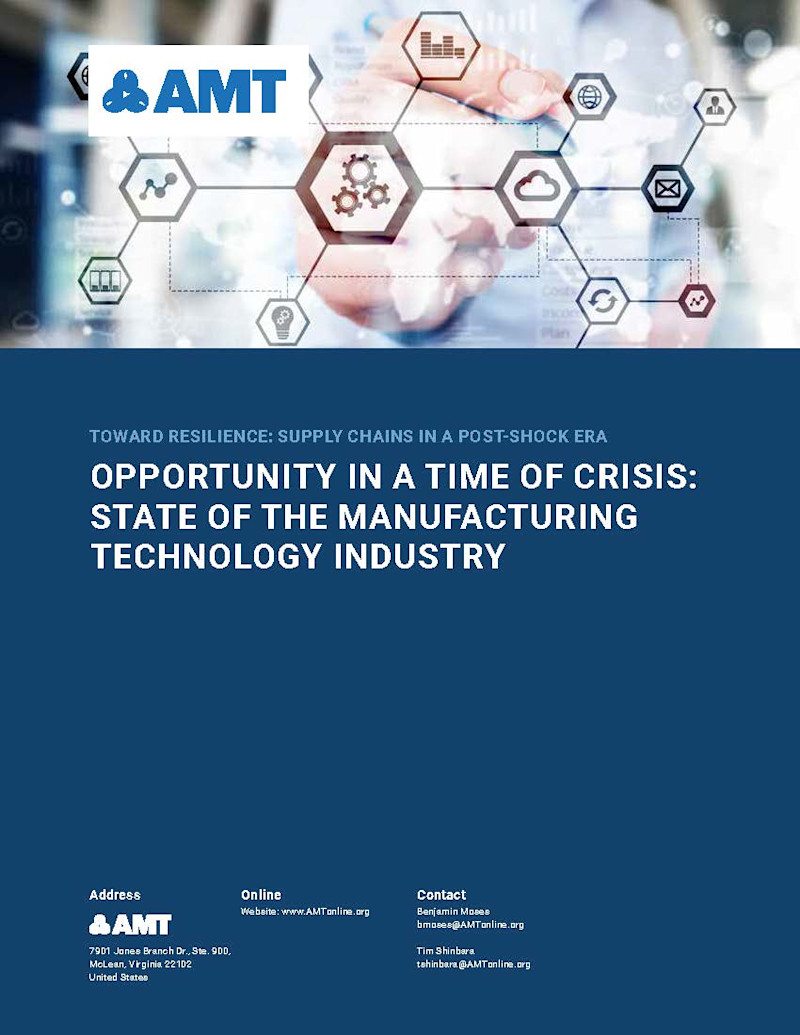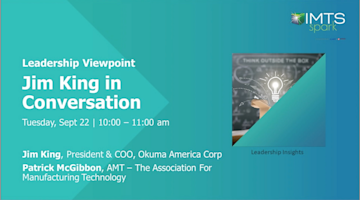The COVID-19 pandemic has exposed a lack of adaptability, flexibility, and resilience in meeting the demand for critical goods, materials, and production equipment in the United States. As it became clear that the United States, over a period of years, had decided to buy, and not build, items that were suddenly critical supplies, equipment builders and manufacturing supply chain management were thrust into public view after having long been in the shadows.
As the pandemic continues to unfold, manufacturers are reevaluating their supply chains and making decisions on what they deem “critical” to their companies and the nation. This is a crucial moment. To avoid a future repetition of a similar global disruption, AMT would like to encourage a discussion about shifting toward a more “virtuous cycle” by addressing the disruption holistically with a robust course of action that creates a more sustainable, healthier industry.
There is no one single culprit for our current supply chain challenge. The goal of manufacturers is to deliver speed and quality at the lowest possible cost in line with market demand. Offshoring has been used to lower labor costs and as a global product development tool to maximize economies of scale and to be more responsive to localized tastes. Price wars discourage R&D and adoption of new technology.
The continuous drive to obtain and produce quality goods quickly and cheaply, however, creates opacity as a side effect. Links in a supply chain are designed to satisfy explicit buyer requirements, and additional information is costly to gather, report, and analyze. Information-sharing, transparency, and contingency-planning do not survive except where they are explicitly required. At most, manufacturers may be able to identify single-source chokepoints in their supply chains.
Unfortunately, the same strategies intended to create flexibility and protect profits have the adverse effect of leaving manufacturers reactive and uncoordinated when faced with external demand shocks.
Some American manufacturers are working to overcome these challenges. Technology adoption strategies with a long-term mindset serve to attract more talent and accelerate innovation. Collaboration between companies in supply chain, and even across industries, can create new areas of competitive advantage. It is not yet clear, however, how the industry as a whole will evolve. What is certain, and what this series aims to uncover, is that flexibility, adaptability, and resilience will certainly be the keys to survival. And while risks and threats abound, there are plenty of opportunities to thrive in the rapidly changing manufacturing landscape.
Read the white paper to learn more about the current state of the MT industry here.






